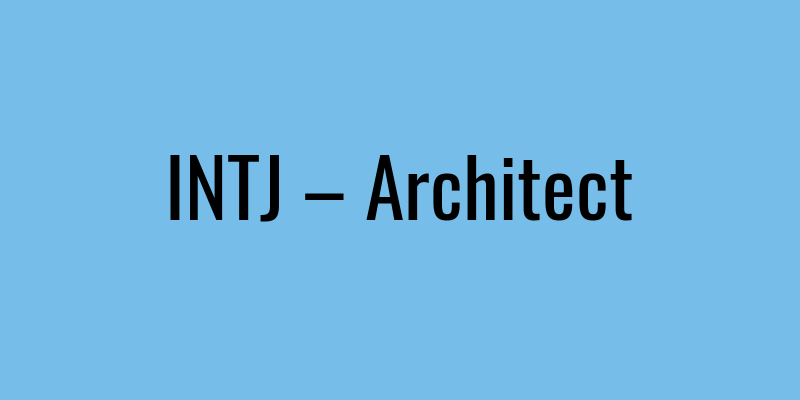The Pros and Cons of Being an INTJ Personality Type
Exploring the Strengths and Weaknesses of the INTJ Personality
The Myers-Briggs Type Indicator (MBTI) is a widely used personality assessment that categorizes individuals into one of 16 personality types. The INTJ personality type is characterized by traits such as introversion, intuition, thinking, and judgment. INTJs are known for their analytical and strategic thinking, as well as their independence and confidence in their abilities. However, like any personality type, being an INTJ comes with its own set of advantages and disadvantages.
In this article, we will explore the strengths and weaknesses of the INTJ personality type, offering insights into the potential benefits and drawbacks of possessing this unique set of traits. Whether you're an INTJ yourself or simply interested in understanding this personality type better, read on to discover the pros and cons of being an INTJ.
Pros
As an INTJ, you possess a range of strengths and advantages that can benefit you in various aspects of life. From your professional endeavors to personal relationships, the characteristics of the INTJ personality type offer numerous advantages that set you apart. Let's delve into some of the key benefits of being an INTJ.
Strategic Thinkers
INTJs are known for their exceptional strategic thinking skills. They have a natural ability to analyze complex data, see patterns, and devise innovative solutions to problems. This strategic mindset enables INTJs to excel in fields that require forward-thinking, such as technology, science, and business. Their capacity to envision and execute long-term plans gives them a competitive edge in various professional settings.
Independent and Self-Reliant
One of the notable strengths of INTJs is their independence and self-reliance. They are comfortable working autonomously and often thrive in environments where they can take charge of their responsibilities. This self-assured nature allows INTJs to pursue their goals with determination and drive, making them highly capable of tackling challenges that may daunt others.
Confident Decision-Makers
INTJs have a strong sense of confidence in their decision-making abilities. They rely on rational analysis and logical reasoning to arrive at well-considered conclusions, which often proves advantageous in leadership roles and high-pressure situations. Their unwavering conviction in their choices can inspire trust and respect from their peers and subordinates.
Visionary Innovators
With their imaginative and forward-focused mindset, INTJs possess a rare ability to envision innovative concepts and strategies. They are drawn to exploring unconventional ideas and approaches, which can lead to groundbreaking innovations in their professional pursuits. Their visionary thinking sets them apart as drivers of change and progress in their respective fields.
Effective Planners
INTJs are adept at strategizing and planning for the future. Their strong analytical skills and ability to see the 'big picture' enable them to develop comprehensive and effective plans for both personal and professional endeavors.
Objective and Impartial
INTJs have a natural inclination towards objectivity and impartiality in decision-making. They are able to assess situations and problems rationally, setting aside personal biases to arrive at well-considered conclusions that benefit the greater good.
Missing a pro?
Let us know which pro you are missing!
Cons
While the INTJ personality type offers numerous strengths, it also presents certain challenges that individuals of this type may encounter. Understanding these disadvantages can provide valuable insights into areas for personal development and growth. Let's take a closer look at the potential drawbacks of being an INTJ.
Difficulty in Expressing Emotions
INTJs may find it challenging to express their emotions openly, which can lead to misunderstandings and disconnect in their personal relationships. Their inclination to prioritize logical reasoning over emotional expression may create barriers to forming deep emotional connections with others, requiring conscious effort to bridge this gap in communication.
Perfectionist Tendencies
A common challenge for INTJs is their perfectionist tendencies, which can manifest in setting extremely high standards for themselves and others. While this pursuit of excellence can drive them to achieve remarkable results, it may also lead to feelings of frustration and self-criticism when their expectations are not met, potentially causing undue stress.
Preference for Solitude
While INTJs value their independence, they may sometimes struggle with a strong preference for solitude, leading to potential isolation from social interactions. This inclination towards introspection and solitary activities can inadvertently limit their exposure to diverse perspectives and experiences, impacting their ability to forge meaningful connections.
Rigidity in Thinking
INTJs' strong adherence to their logical frameworks and principles may contribute to a degree of inflexibility in their thinking. Their commitment to intellectual rigor and logic can sometimes hinder their openness to considering alternative viewpoints or adapting to unforeseen circumstances, posing challenges in collaborative settings.
Tendency Towards Isolation
Due to their preference for solitude, INTJs may struggle with feeling isolated or disconnected from others. This inclination can result in limited social interactions, potentially affecting their ability to form and maintain meaningful personal relationships.
Challenge in Delegating
INTJs often prefer to work independently and may encounter difficulty in delegating tasks to others. This inclination could lead to an overwhelming workload and hinder their ability to collaborate effectively within a team.
Missing a con?
Let us know which con you are missing!
Conclusion
In conclusion, the INTJ personality type encompasses a distinctive blend of strengths and weaknesses that shape the way individuals with this personality approach life and interact with the world around them. By recognizing and harnessing their strengths while working to mitigate the impact of potential drawbacks, INTJs can navigate the complexities of their personality type with greater understanding and resilience.
What do you think?
Do you think the pros outweigh the cons?







